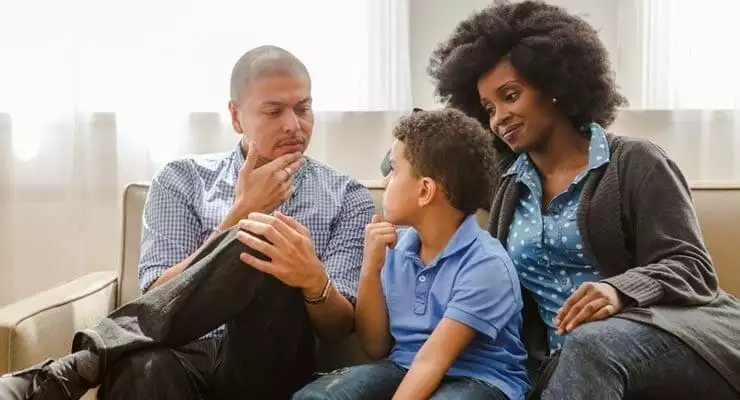In past generations, kids were lucky if their parents had “the talk” with them, a talk parents might have referred to as being about “the birds and the bees,” that cute euphemism for sex. A talk like that was certainly better than not having a talk at all, but it is not the best approach. Kids do better with an ongoing and open dialog.
Preschool Children
Preschool children start to wonder where they came from, especially if you are pregnant. They also notice the difference between girls and boys. They are fascinated with their bodies and tend to have plenty of questions for you. Answer their questions but don’t go overboard with a frank discussion of the sexual act or what erections or periods are. Preschoolers are too young to grasp all of that.
Practice Some Answers
So that you are not embarrassed or handle your preschooler’s question in an awkward way, have some answers prepared ahead of time. You want your child to view these talks as being pleasant and natural. If your preschool child asks where babies come from, for example, tell her that babies grow inside the mommy’s tummy. Tell her that she grew in your tummy, if that is the case, until she was ready to be born. When you talk about body parts, say penis and vagina, not “pee-pee” or “va-jay-jay.” If your preschool child never asks you any questions about sex, bring it up yourself. Some parents like to buy a children’s book about sexuality as a way to start the conversation.
Privacy
Teach your preschooler about privacy by explaining that no one, except for a doctor or a nurse during an exam, is allowed to touch his genitals. Explain that he is not allowed to touch other kids’ genitals. Teach your child to knock before entering your bedroom. Model that behavior by knocking before entering his room.
Young Children
Children around age 5 to 7 years may take an interest in the sex act and wonder about the connection between parents and babies. You can simply say that sex is special cuddling that moms and dads do to make babies. Tell her that a seed from daddy and an egg from mommy form a baby. Be prepared for all sorts of funny responses to that one, such as your child calling you a chicken.
Teenagers
When your child is a pre-teen or young teen, he will probably have sex education in school. That is a good start, but parents need to supplement this education. Look for moments when you can casually bring up the subject. Maybe you are watching TV together and the program is about sex. Use that as your basis for explaining your views and starting a conversation. For example, tell your teen what you think about kids being casual about oral sex. Don’t lecture, though; once you’ve said what you have to say, listen to what your teen thinks about that. Your teen may know more about some things than you do. If he asks you a question and you don’t know the answer, tell him that you are not sure but that you are going to find out for him.





